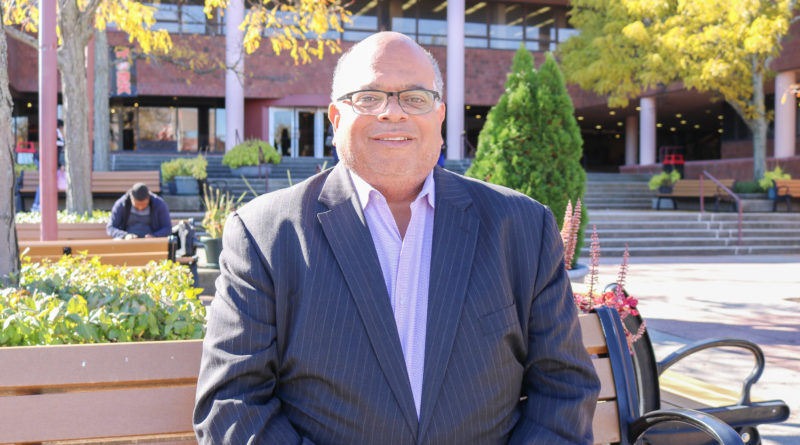REBNY president talks accomplishments, challenges
BY BENJAMIN FANG
When John Banks joined the Real Estate Board of New York as president in 2014, he was pleasantly surprised to learn just how much policy analysis took place at the organization.
REBNY, which represents New York City’s real estate industry, has its own internal policy and research group. They produce reports for the industry, including the Residential Listing Service Syndication, which gives the most updated real estate listing information.
“They are much more than an advocacy organization,” he said.
Banks, who lives in Pelham Manor with his family, came to REBNY from Con Edison, where he served as head of government relations for 13 years.
His background also includes stints as a chief of staff for the New York City Council and deputy director of the Council’s Finance Division. His government experience dates back to former Mayor Ed Koch, where he worked in the office of operations.
In 2010, Banks served as the vice chairman of the New York City Charter Revision Commission and three years later, on Mayor Bill de Blasio’s transition team.
Both REBNY and Con Ed are ubiquitous to New York, Banks said, and both are committed to the city.
“Because of that commitment, they look at things much more on a community basis,” he said. “The buildings they build are going to be here for a long time.”
Since his appointment to the post in 2014, Banks said the real estate organization has achieved two major feats. One is the East Midtown rezoning, a project that began before his tenure but moved forward under his leadership.
The second is the reauthorization of the old 421-a program, now called the Affordable New York Housing Program. It took two years to complete, but working with Governor Andrew Cuomo and the Building and Construction Trades Council, Banks believes the deal struck the right balance.
“We came up with a workable alternative that provides more affordability,” he said, “and establishes a wage that is able to allow the construction of the types of building we need to address the affordability crisis.”
Affordable New York provides significant financial relief to the builders of those affordable units, allowing them to offer a greater percentage at deeper levels, he said.
“It’s very expensive to build here,” Banks said. “If we are able to work with government, we think we can bridge the gap between what we need to take on the risk of building and offering a quality product.”
Banks added that property owners, developers and landlords today face many challenges, including a perception that they have been given “an unfair advantage” in New York City.
“We want people to know developers and property owners love the city as much as other people,” he said.
Despite recent major accomplishments, REBNY is closely watching a number of projects that could impact their members. One piece of legislation in particular is the Small Business Jobs Survival Act, a bill that would give commercial tenants a right to a 10-year lease renewal and rights to negotiate a more fair lease.
REBNY is “adamantly opposed” to the bill. Banks said the 1970s-era legislation wouldn’t help mom-and-pop retailers.
“We want to work with the City Council and the mayor to try to fashion a piece of legislation that can provide some relief to mom-and-pop stores,” he said, “but also not penalize owners who have invested in the city.”
He noted that the retail world has changed dramatically in the last decade, especially with the introduction of e-commerce. Banks also pointed to over-regulation and additional requirements like family leave, a higher minimum wage and other “worthy changes” that still put pressure on small businesses.
“We want folks to have an honest conversation on all the factors that make it hard for small mom-and-pop shops,” he said.
Banks is also paying attention to Albany this upcoming legislative session because New York City’s rent laws are set to expire. He said there are strong desires to change those laws as well, but REBNY is looking forward to fashioning a reasonable bill.
Within the real estate industry, Banks said REBNY has been focusing on the areas of diversity, equality and inclusion. He noted that the industry includes many people and positions, including brokers, building operators, building managers and operating engineers.
“This is a dynamic industry and there are lots of jobs opportunities,” Banks said, “and they’re as diverse as any section of the economy.”


